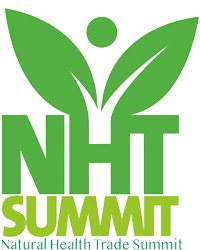Upcoming elections in Europe and the UK could spark fresh debate and policy activity around regulation of food supplements and herbal products, the director general of the HFMA has suggested in an interview with Natural Newdesk.
Martin Last says that many of issues that had previously preoccupied the supplements industry in the UK and across Europe had essentially been “put on hold”.
“Leading up to the June elections in Europe the working groups of the Commission have been busily ticking boxes to show that by the end of their term, they’ve performed their functions. There will be a quiet period until the new Commission comes into place. That change will likely spark a whole range of new issues. We could see things like maximum levels, the herbals directive and health claims coming right back to the forefront. Our government is normally running slightly behind that because they are watching what’s going on Europe and saying, ‘do we need to apply that in the UK?’. So these big issues are likely to back come here.”
Consumers should benefit
Asked if a prospective Labour Government would have an appetite for a “burning of red tape”, as pledged by the Conservatives following Brexit, Last told Natural Newsdesk: “Well, the proof will be in the pudding. I do still expect red tape to be cut in ways that make life easier for industry and consumers. And the main thing is that the consumer should see the benefit of this. That should be an automatic. So, I think there is still an opportunity here for the future.
“At the HFMA we are in conversation with a range of bodies about this. We sit in on many of the government bodies, and with most of those we have active working relationships. For example, we are talking regularly with the MHRA. And we are talking to them about what we can do together. Clearly they are the enforcement body, but there are conversations to be had and work to be done that can help companies get where they need to be. Similarly, with Defra and the Windsor Framework, we are working on how we move forward in Europe and in Northern Ireland and the UK.”
In the interview, the HFMA DG stressed the importance of continuing to engage regularly with European industry and regulators. Any new restrictions imposed on levels or claims could potentially see a “spinoff here”, he warns.
“For some reason or rather, Europe seems oppositional to supplementation. And that doesn’t come from a position of science, it’s really very arbitrary. That should change. And I’m working with the European associations to try and change the attitude in Europe. But currently it remains a threat.
“The problem is that if markets start to exist in isolation you then start to see a breakdown in the supply chain. We need to have a fluid supply chain across Europe and across the world. If you have a situation where Germany says it isn’t going to do this, or Italy says isn’t going to do that, the viability of the entire supply chain is threatened. So we need to be aware of those threats. And it’s about challenging regulations where we need to.”
Mainstream thinking
Last says that the HFMA will work hard to persuade politicians and policy-makers that natural health approaches should be part of mainstream thinking. “I feel very firmly that we shouldn’t be seen as a separate part of the health service. We should be seen as an integral part of it. The role of supplementation in helping keeping people healthy should be an integral part of wider thinking about health and wellbeing. It’s another area that we’re working on with our political advisors. We want to get a message out to government that we can be supportive in these goals, and ensure we are recognised as a respected and trusted voice.
“That leads into what I would say is the biggest opportunity, which is to get us firmly into the mainstream. People shouldn’t be asking themselves, should I take a supplement? The answer should be a clear yes. And if someone has been prescribed antibiotics, then it should be quite expected to be taking a probiotic alongside it, or some other nutritional support. We need to get that type of thinking fully into the mainstream.”
Read the full interview with Martin Last here.



